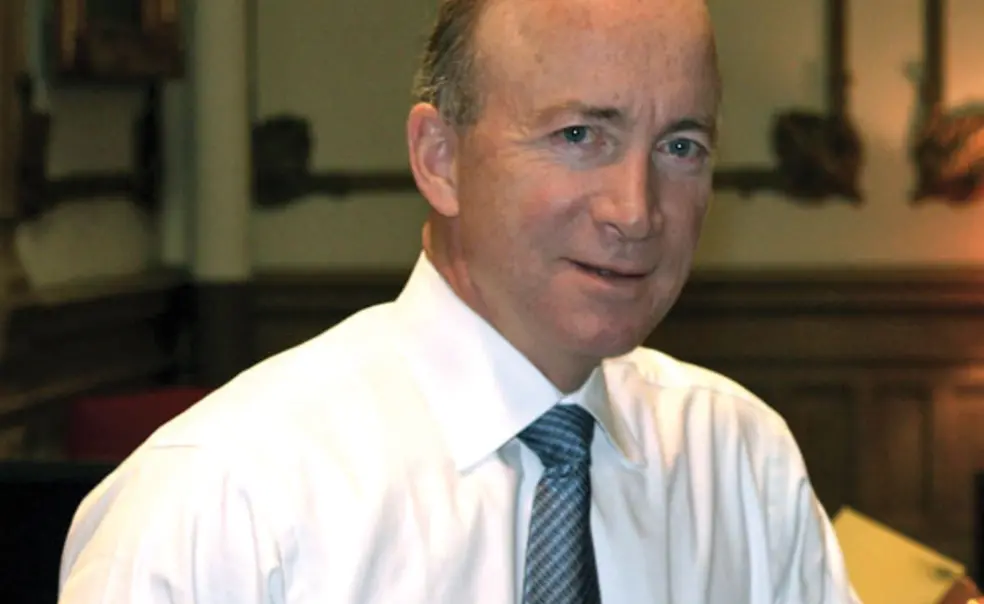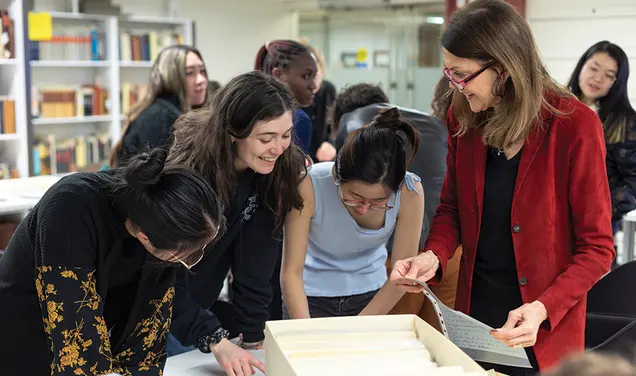Alumni Profile: Mitch Daniels '71, tackling Indiana's economy
When it comes to the future of his state, Indiana Gov. Mitch Daniels ’71 is thinking big. But his first term demonstrates how bold action might not be the surest ticket to a second term. The governor has ruffled so many feathers that two credible Democrats are raring to take him on in the November election.
Daniels, a Republican and former director of the Office of Management and Budget under President George W. Bush, has pushed a series of controversial policies since ending a 16-year Democratic hold on the governor’s office in 2004. He says he aims to improve the sagging economic competitiveness of his industrial state.
“This was a state in which the average citizen out-earned the average American 40 years ago, in the heyday of manufacturing,” Daniels says. “I wanted it to be that state again.”
From putting the state on daylight saving time for the first time (to eliminate logistical snafus that can create problems for businesses) to privatizing a major toll road by leasing it to an Australian-Spanish consortium to closing a host of state motor-vehicle offices, aspects of Daniels’ bold agenda have left voters divided. “Hoosiers are resistant to change, even if it’s good change,” says Ed Feigenbaum, who publishes a political newsletter in Indianapolis.
Daniels acknowledges the consternation he’s caused some constituents. “We have moved maybe too fast for some people,” he says. There are things, he adds, that he “should have done better. Preparing the ground for certain actions might have been a good idea. Sometimes we had to choose between getting the job done and getting the P.R. done, and we chose the former.”
Indiana certainly could use an economic shot in the arm. While unemployment is lower than it was two years ago, well-paying manufacturing jobs are being lost, household income is down, and Indiana has among the nation’s highest rates of foreclosure.
The toll-road lease is set to bring in $3.8 billion that will be devoted to the state’s transportation system. Daniels also has lobbied hard, and successfully, for foreign investment.
As the election approaches, the toughest issue for Daniels probably is the state’s property tax. Over the past few decades, Indiana slowly has shifted the tax burden away from businesses and onto property owners, and now homeowners are up in arms. The Indiana General Assembly likely will pass some version of Daniels’ property-tax reform package. How the changes are received will have a major impact on his re-election bid.
Two Democrats — architect and neophyte candidate Jim Schellinger and former U.S. Rep. Jill Long Thompson — are in the race to challenge Daniels. But no one in the state is writing off the governor.
For his part, Daniels is prepared for a tight race. “It’s almost always that way,” he said. “I would expect it.”
Louis Jacobson ’92 writes a column on politics in the states for stateline.org, from which this article is adapted.










No responses yet